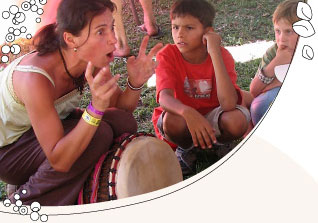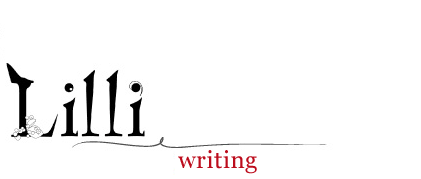|
Coastkids Illawarra
December 2009
www.coastkidsillawarra.com
Storytelling a skill for
everyday
Part One
By Lillian Rodrigues-Pang
Many of us have heard of the oral tradition
of storytelling. It is often referred to as a romanticised
feature of days gone by or of the culture of "others".
There are also many professionals referred to as storytellers:
the author, scriptwriter, songwriter, screenwriter, to mention
a few. What is your place then as a parent, family member,
community member, storyteller?
While some may see it as a feature of the past,
oral storytelling is a practice that is alive and well in
Australia and the world. Folk tales, cultural tales, creation
tales, religious tales and the life story are available for
you to hear in person, on CD, bit-torrent and iTunes download.
I am a professional oral storyteller. I tell stories and do
workshops with children, youth, adolescents and adults in
a number of different contexts and settings. I do not read
books to people. I tell the story in the traditional manner,
from my mouth and heart to your ears and heart.
Lets have a closer look at the home and storytelling.
The immediate example of storytelling being alive and well
is gossip. Essentially this is storytelling as the juiciest
pieces of gossip contain characters, hearty descriptions and
captivating twists in events. This form of storytelling is
enjoyable for the teller as well as the listener.
How many times have you recounted stories from
you youth, living in another country or part of the country,
of family members near and far - surely everyone has a story
about that excentric aunt! We use stories to remember and
honour people, as we tell of our experience of them, of the
times we shared. All of these are transmitted though story.
And then there is my favourite - stories about
food. Growing food, scarcity of food, where it comes from.
Can you actually tell about your favourite foods without telling
the story behind it? The way it has to be made? Who you shared
it with? Is it a family favourite? Probably the majority of
stories I hear are about food and they are always soooo much
better when I get a taste as well!
Inherently and within the movements of our daily
lives we are storytellers. Lets take it a bit further then
and look at storytelling and your children. How often do you
put the book down and tell a story to your children?
It is surprising to realise how much the oral
story is a part of our adult and family lives; yet as the
most important primary literacy tool we have it does not gain
the level of use or recognition it deserves.
In a recent study it was found that "Storytelling
is the single, strongest predictor of literacy. Those who
hear stories before the age of four, read the best."
- George Wells report findings (2005)
Oral stories (not movies or book reading) establish
the sound structure of a language. They are entertaining and
captivating and ignite imagination and language as a joint
endeavour. Children learn to enjoy sounds, descriptions and
will take in a moral lesson from a story with ease. Many stories
cover the themes of trying hard to achieve a goal, that little
people can overcome great odds, that honesty and kindness
can pay off, not looking after the earth can have disastrous
consequences ...
Stories assist our sense of identity. In Australia
we have a strong association with battler tales, the convict
who made it against the odds, the thief who wore a metal outfit
to outsmart the law, the kid who rose up and became a great
sports person. The stories we choose to tell as a family,
as a nation as a person make up our identity.
They also help with language (and cultural)
transmission. Have you noticed it is only those of Scottish
decent that use the word 'caniption'? My mother was born in
El Salvador and the stories she told me included Spanish phrases.
This was the beginning of my Spanish language lessons. I became
familiar with the sound and structure of the language from
these stories. It is a method I use in primary schools today
to teach Spanish. Stories with repeated 'riffs' or phrases
are loads of fun and great for memorisation.
Leslie Silko, a Laguna storyteller (Native North
Amrican Indian) is quoted as saying;
“I will tell you something about stories.
They aren’t just entertainment.
Don’t be fooled.”
So what can you do to start telling a wider
range of stories to your children? Stay tuned for part two
in next issue.......
©Lillian Rodrigues-Pang
|

